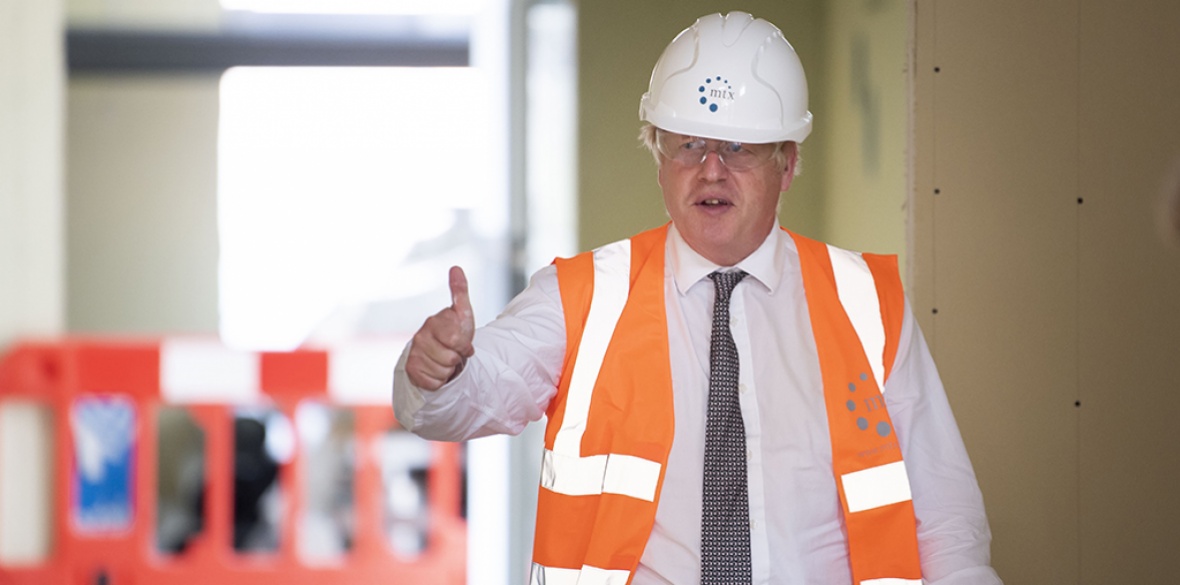BORIS JOHNSON’S appalling bungling of Britain’s response to the Covid-19 pandemic should put paid to any notion of Tory “economic competence.”
On their watch Britain has managed to combine the highest death toll in Europe — and one of the highest anywhere in the world — with a recession nearly twice as deep as the European average.
“I said hard times were coming,” Chancellor Rishi Sunak pleads, as if he was a weather forecaster who has read the skies correctly rather than part of a government whose choices brought us to this point.
Johnson’s irresponsible refusal to take coronavirus seriously through January, February and most of March meant that our lockdown was imposed late.
If he had bothered to listen to warnings from the World Health Organisation, or China, the country that suffered the first outbreak, or indeed attended his own government’s emergency Cobra meetings on the threat, an earlier lockdown could have saved tens of thousands of lives.
When the government finally bowed to the inevitable, Covid-19 was so well established that suppressing it was far harder than it proved in countries that acted quickly.
It has not, in fact, been suppressed, with daily death tolls creeping back above 100 on Tuesday and the number of new infections above 1,000, the biggest 24-hour increase since June.
The reasons Britain is so badly affected by Covid-19 are a mixture of the short-term — an incompetent, callous government — and the long-term, such as the impact of a decade of austerity or the inability of the “post-political” neoliberal state to undertake “the concrete preparation required to withstand a pandemic,” as Tara McCormack and Lee Jones have argued in The Full Brexit.
A similar mix of ministerial blunders and long-term structural fragility is responsible for the disproportionate impact on economic output.
The months-long lockdown has proved a terrible strain for an economy heavily reliant on consumer spending and hobbled by a dominant short-term profiteering culture in business.
The Bank of England was warning five years ago that too many company executives prioritise maximising dividends to shareholders who are more interested in extracting as much as they can than in the long-term health of the firm.
This leaves companies incapable of handling even a temporary reduction in income without imposing drastic cost-cutting measures, most frequently by sacking workers.
Labour is right to assert that the government could be doing a lot more to protect jobs than it is.
Yet its demands, such as extending furlough subsidies, are still painkillers rather than cures — they do not address the underlying problems in the economy. As the economist James Meadway has argued, furlough “effectively preserves the economy in aspic,” assuming that the goal is to return to the pre-pandemic status quo without trying to transform or even learn from it.
The same lack of flexibility is shown in both main parties’ attitude to school reopening. Trade union calls for requisitioning public spaces and a teacher recruitment drive, which would facilitate smaller classes and socially distanced learning, are ignored in favour of a binary schools-shut versus schools-open-as-before narrative that misrepresents teachers’ concerns.
The left’s response to the downturn must be militant: mass unemployment can be prevented, and the movement must mobilise industrial and political pressure to prevent job losses.
But it should also be extended to demands for fundamental change. Nationalisations, for example, can both save jobs and see industries reshaped in line with climate change commitments. Regional investment can create jobs while rebuilding our country’s manufacturing capacity. Pay rises for key workers are an economic stimulus that can address a child poverty crisis that has been worsening for years.
It has rarely been clearer that the system is broken. It will never meet human needs that it is not designed to address. We should not be seeking to patch it up, but to replace it.









